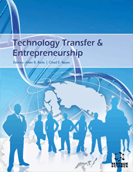Abstract
The Knowledge Economy is the environment within which we live and work today. It impacts all work, both within organizations and the emerging workforce. The Knowledge Economy relies on workers’ expertise (individual knowledge) and the informed integration of this knowledge to move an organization in a positive direction. This article describes a Knowledge Economy program (Project-based Internships) that enables organizations and new workforce members to experience and grasp the importance of knowledge work in sustaining and growing organizations. This is especially applicable to the technology domain as the founders in this area are focused on their individual knowledge of science and technology. They often need to build sustainable organizations with knowledge work to deliver and sustain their expert inventions and/or discoveries.
Knowledge work has two distinct attributes that define its orientation and operation. Knowledge workers are autonomous in their work and they are asset-thinkers, meaning that all work is focused on a result, which will create value for an organization. Within these two attributes, knowledge workers also must recognize the difference between quality and quantity, use project structures, and continuously evaluate for learning and innovation.
Our current education system does not recognize the individual knowledge perspective in shaping students’ experiences. Project-based work is structured to empower and enable students’ experiences to be knowledge work to foster this thinking and its best practices and to create the environment that supports knowledge work within the organizations that the knowledge worker serves.
Various current-day methodologies are built into the structured project work, such as The Lean Startup, the recognition of invisible capital and growth mindsets, building knowledge work capabilities, and, finally, building an organizational environment in which success will thrive.
Keywords: Culture, knowledge work, knowledge environment, mindsets, communication, collaboration, knowledge work expertise, data, information, knowledge, wisdom, action plan, experiential learning.
 11
11 5
5 2
2 2
2


